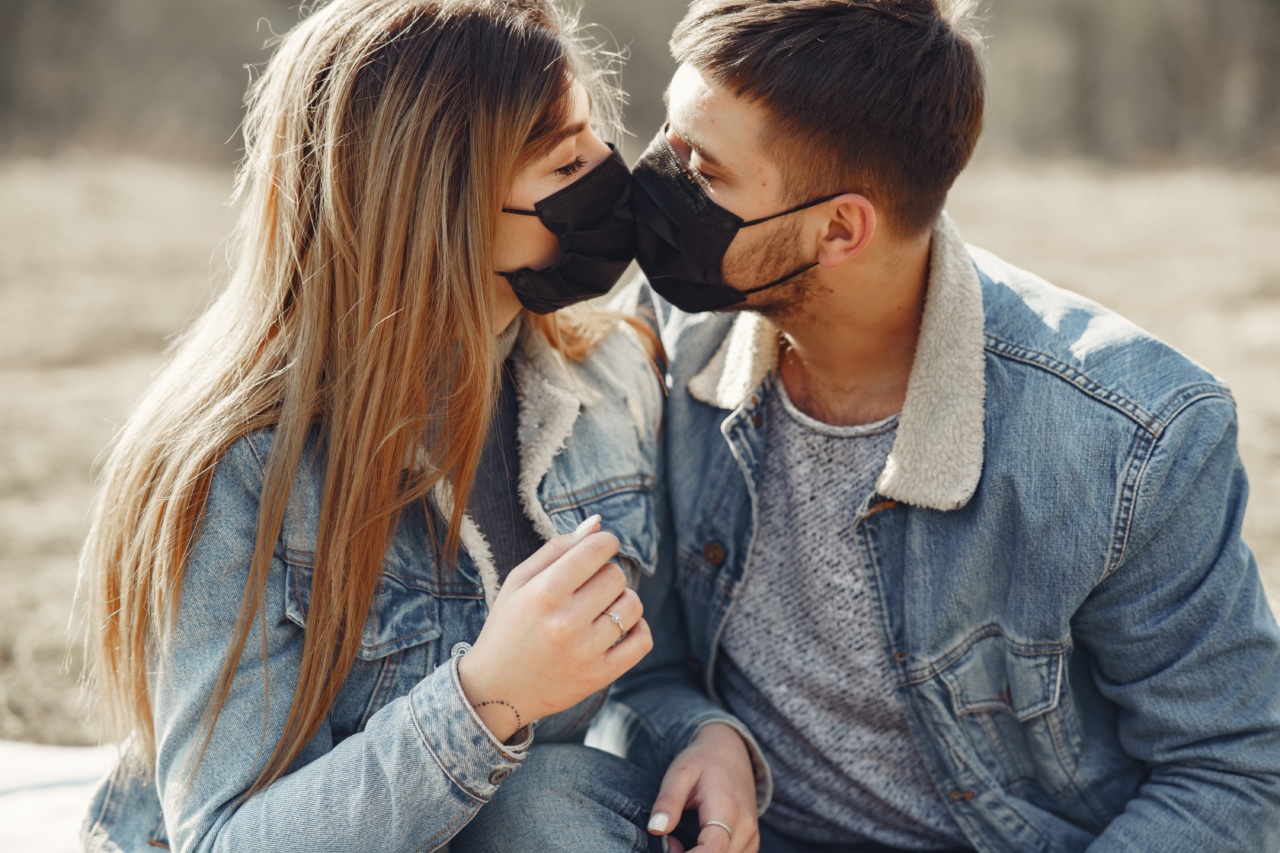In these challenging times during the ongoing COVID-19 pandemic, it is natural to feel stressed, anxious, or restless.
The constant flow of distressing news, social isolation, and uncertainty about the future can significantly impact our mental well-being. While seeking professional help is crucial in severe cases, there are also several natural remedies that can help ease anxiety and promote a sense of calm.
In this article, we will explore 30 natural anxiolytics that can provide relief from pandemic worries.
1. Exercise Regularly
Engaging in regular physical activity has been proven to reduce anxiety levels and improve mood. Exercise releases endorphins, the feel-good hormones in our body, which help in reducing stress and anxiety.
Activities such as jogging, yoga, dancing, or even a brisk walk can make a significant difference in managing anxiety during the pandemic.
2. Practice Deep Breathing
Deep breathing exercises can instantly calm your mind and relieve anxiety. Take slow, deep breaths, inhaling through your nose and exhaling through your mouth.
Deep breathing helps regulate your nervous system and promotes relaxation, reducing anxiety symptoms effectively.
3. Try Meditation and Mindfulness
Meditation and mindfulness practices have long been used to reduce stress and anxiety. By focusing on the present moment, meditation helps quieten the mind and promotes a state of calmness.
Dedicate a few minutes each day to sit quietly, close your eyes, and concentrate on your breath or a specific object, letting go of stressful thoughts surrounding the pandemic.
4. Get Sufficient Sleep
Adequate sleep is essential for our overall well-being, both physically and mentally. Lack of sleep can contribute to increased anxiety levels.
Establish a consistent sleep routine, avoid excessive screen time before bed, and create a sleep-conducive environment to ensure quality rest each night, which in turn can help alleviate anxiety.
5. Maintain a Balanced Diet
Your diet plays a crucial role in regulating your mood and mental health. Opt for a well-balanced diet rich in fruits, vegetables, whole grains, and lean proteins.
Reduce the intake of caffeine, alcohol, and processed foods as they can worsen anxiety symptoms. Certain nutrients like omega-3 fatty acids, magnesium, and B vitamins have been linked to reducing anxiety, so include foods like fatty fish, nuts, seeds, and leafy greens in your diet.
6. Limit News Consumption
Constantly exposing yourself to distressing news updates can heighten anxiety levels. Stay informed, but limit your news consumption to a designated time each day.
Avoid excessive exposure to social media platforms that might amplify fear and negative emotions. Engage in activities you enjoy and divert your attention from constantly checking pandemic-related news.
7. Connect with Loved Ones
Social isolation during the pandemic can take a toll on your mental health. Stay connected with your loved ones through phone calls, video chats, or online group activities.
Sharing your worries and emotions with others can provide a sense of relief and support, reducing anxiety and feelings of loneliness.
8. Engage in Relaxation Techniques
Practicing relaxation techniques such as progressive muscle relaxation, visualization exercises, or taking warm baths can help relieve anxiety symptoms.
Find what works best for you, and incorporate these techniques into your daily routine to promote relaxation and reduce stress.
9. Use Aromatherapy
Aromatherapy utilizes the natural scents of essential oils to promote relaxation and ease anxiety. Oils like lavender, chamomile, and bergamot are known for their calming properties.
You can use them in a diffuser, add them to your bath, or even apply them topically after diluting with a carrier oil for a soothing effect.
10. Spend Time in Nature
Spending time outdoors and connecting with nature can have a profoundly positive impact on our mental health. Take walks in the park, sit by a lake, or simply spend time in your garden.
Nature has a way of calming our minds and providing a sense of peace, making it a natural anxiolytic.
11. Engage in Creative Activities
Engaging in creative activities such as painting, writing, playing a musical instrument, or crafting can help distract your mind from pandemic-related worries and promote relaxation.
Allow yourself to explore your creative side and immerse yourself in activities that bring you joy.
12. Practice Yoga
Yoga combines physical movement, breath control, and meditation, making it an effective natural remedy for anxiety.
Regular practice of yoga postures, along with focused breathing, can help reduce stress levels, promote relaxation, and increase mindfulness.
13. Listen to Calming Music
Listening to calming music can have a soothing effect on your nervous system. Create a playlist of relaxing instrumental tracks or nature sounds that help you unwind and alleviate anxiety.
Make it a habit to listen to this music whenever you feel overwhelmed by pandemic worries.
14. Engage in Regular Journaling
Writing down your thoughts and feelings in a journal can provide an emotional outlet and help clarify your emotions. Set aside a few minutes each day to write about your worries, gratitude, or any other thoughts that come to your mind.
Journaling can be a therapeutic practice that aids in reducing anxiety.
15. Adopt a Pet
Pets bring joy, companionship, and a sense of purpose into our lives. Research has shown that owning a pet can reduce stress, anxiety, and feelings of loneliness.
Consider adopting a furry friend from a local shelter and experience the emotional benefits they provide during these uncertain times.
16. Take Breaks from Technology
Constant exposure to screens can contribute to increased anxiety and restlessness. Take regular breaks from technology, especially from social media and news updates.
Engage in activities like reading a book, going for a walk, or practicing a hobby that doesn’t involve screens to give your mind a break from pandemic-related information overload.
17. Practice Self-Care
Engage in activities that prioritize self-care and promote relaxation. Take warm baths, indulge in skincare routines, practice gentle stretching exercises, or pamper yourself with a massage.
Prioritizing self-care can significantly reduce anxiety levels and enhance your overall well-being.
18. Laugh and Find Humor
Laughter is indeed the best medicine. Find opportunities to laugh and lighten your mood. Watch a comedy show, read funny books, or engage in activities that make you smile.
Laughter has been shown to reduce stress hormones and increase the production of endorphins, providing a natural way to combat anxiety.
19. Integrate Herbal Remedies
Herbs like chamomile, passionflower, and valerian root have long been used as natural remedies to ease anxiety symptoms. These herbs are available in various forms such as tea, tinctures, or supplements.
However, consult with a healthcare professional before incorporating herbal remedies into your routine, especially if you are on any medications.
20. Try Acupuncture
Acupuncture, an ancient Chinese practice, involves the insertion of thin needles into specific points of the body. It is believed to help restore the flow of energy and promote relaxation.
Acupuncture sessions can help reduce anxiety and stress, providing a holistic approach to calming pandemic worries.
21. Practice Cognitive Behavioral Therapy (CBT)
Cognitive Behavioral Therapy (CBT) is a psychological treatment that focuses on reshaping negative thought patterns and behaviors. CBT techniques can be used to reframe pandemic-related thoughts that contribute to anxiety.
Seeking guidance from a trained therapist can help you implement CBT techniques effectively.
22. Use Herbal Teas
Sipping on a hot cup of herbal tea can have a calming effect on your mind and body. Chamomile, lavender, lemon balm, and green tea are known for their calming properties.
Replace your regular caffeinated beverages with soothing herbal teas to aid in reducing anxiety symptoms.
23. Engage in Breathing Exercises
Various breathing exercises, such as box breathing or 4-7-8 breathing, can help calm your nervous system and reduce anxiety.
These techniques involve inhaling, holding the breath, and exhaling in specific patterns, promoting a sense of relaxation and ease.
24. Seek Social Support Online
Online support groups and forums can provide you with a sense of community and support during these challenging times.
Connecting with individuals who are going through similar experiences can help normalize your emotions and provide valuable insights about coping strategies.
25. Set Realistic Goals
Setting small, achievable goals can help regain a sense of control and reduce anxiety. Break down larger tasks into smaller steps and focus on completing them one at a time.
Celebrating small victories can boost your confidence and help alleviate pandemic-related worries.
26. Embrace Sensory Soothing
Engaging in activities that stimulate your senses in a calming way can help reduce anxiety. Use essential oils, scented candles, or take a warm bath to engage your sense of smell.
Wrap yourself in a cozy blanket or listen to soft music to comfort your sense of touch and hearing. Experiment with sensory-based activities that promote relaxation for you.
27. Practice Gratitude
Focusing on gratitude can shift your perspective and reduce anxiety. Start a gratitude journal and write down three things you are grateful for each day. Engage in conversations with loved ones about things you appreciate in your life.
Cultivating gratitude can help you find moments of positivity amidst the pandemic worries.
28. Try Progressive Muscle Relaxation
Progressive muscle relaxation involves tensing and relaxing different muscle groups to release tension and promote relaxation. Start from your toes and work your way up to your head, systematically tensing and releasing each muscle group.
This technique can help you become more aware of physical sensations and reduce anxiety.
29. Seek Professional Help
If your anxiety becomes overwhelming and starts to interfere with your daily functioning, do not hesitate to seek professional help.
Therapists and counselors are equipped to guide you through challenging times and provide effective strategies to manage anxiety.
30. Practice Acceptance and Self-Compassion
It is essential to acknowledge that it is normal to feel anxious during a pandemic. Practice self-compassion and remind yourself that you are doing the best you can in a difficult situation.
Accept that there will be ups and downs, and prioritize your mental well-being above all.































